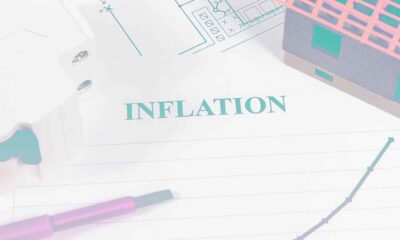Lifestyle
Why Embarrassing Memories Come at Night?


Many of us have experienced having trouble falling asleep due to embarrassing memories. But why?
The locus coeruleus ceases producing noradrenaline during Rapid Eye Movement (REM) sleep. An hour to an hour and a half after falling asleep, REM sleep begins.
When you are in REM sleep, you often have vivid dreams. Sleep is not as deep when you enter REM sleep since brain activity increases once more during this stage. The levels of activity are similar to when you are awake. Because of this, REM sleep is when vivid dreams occur.
There is some evidence for the nocturnal cringe phenomenon, but sleep expert Eus van Someren cautions that this evidence needs to be taken with a grain of salt. “We found that if you induce embarrassment in good sleepers, brain scans monitoring the limbic circuit indicate that the embarrassment is less acute in the morning than the evening before,” he says.
Van Someren conducted a clever experiment to gauge this in which he filmed participants slowly singing karaoke-style to tunes like Silent Night. Most importantly, their headphones prevented them from hearing their own voices. Then they listened to their recordings being played back to them in all their flaw-filled splendor. Participants filled out questionnaires and physiological reactions like blushing were monitored to gauge participants’ feelings of shame.
What is the connection between sleep and emotional well-being?
“Not only is good sleep beneficial, but restless sleep can actually be maladaptive, meaning the brain can become even more sensitized to negative emotional states,” says van Someren.
When the sleeper repeatedly returns to alertness or various sleep phases, they are said to be experiencing restless sleep. While the various sleep phases activate and deactivate various areas of the brain, REM appears to be one of the most significant.
The link between memory and emotional response is severed by stopping the cascade. Rumination and symptoms of PTSD may emerge from this happening less frequently in people who have trouble sleeping. For people who typically get enough sleep, embarrassing feelings may lessen by morning.
“Good sleepers tend not to get PTSD,” van Someren notes.
What is the basis of sound sleep at night?
Even while avoiding screens right before bed is solid advice for sleep, van Someren’s response may come as a surprise: “We don’t have a solution for restless sleep, so we focus more on limiting damage, using cognitive behavioral therapy for insomnia.”
According to some studies, a person should sleep for fewer hours overall after having a bad night’s sleep. This lessens the negative effects of protracted restless sleep while also teaching the body to fit sleep phases into the ideal 7- or 8-hour timeframe.
Therefore, try to keep in mind that you’ll feel better about it in the morning if you find yourself lying awake in bed thinking about that embarrassing thing you did.

































